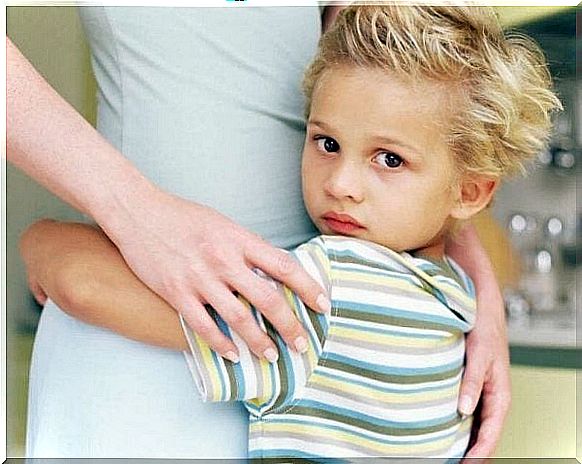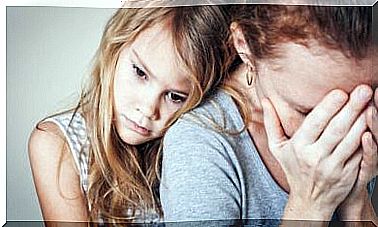Hyperchildren: Overprotected Children And Stress

Hyperchildren are a product of hyperparents. It is a new and rising trend that neglects important aspects of childhood. For example, playing, outdoor activity, boredom and facing problems. This is the result of an upbringing style based on overprotection, over-attention and too much praise.
A hyperchild responds to others before responding to themselves. They have too little time for self-discovery, intrapersonal development and many other important traits that develop in childhood.
What does the term “hyperchildren” mean?
The terms “hyperchildren” or “hyperparents” are terms related to keeping children under control. As a result, they are cut off from the activities that are normal for people their age. Thus, they become people who are not independent because they are expected to be perfect.
The term originated in the United States. Traditionally, it is related to the concept of “spoiled child”. But Eva Millet, journalist and author of the books Hyper-Paternity and Hyper-Children: Perfect Children, says that hyper-children tend to stress their parents a lot.
What does life look like for hyperchildren?
Hyperchildren are preoccupied with leisure activities that they are not passionate about. They know their disadvantages very well, but their parents perceive them as investments. That is, they have invested a lot of money and effort in raising their children, and think (often unknowingly) that all of this will lead to automatic success for the children.
The children are much more aware of this than we imagine. And the pressure it causes affects them on every level. Their lives are lived with constant stress because they have to meet the expectations of others.
However, there is another side of the coin: Hyperchildren become the center of attention in the family. As Millet says: “You visit their home and you can not see a single picture of the grandparents. You only see pictures of the kids. They are pretty much the kings and queens of the house ”.
This overstimulation creates a sense of superiority in children that can negatively affect their personal development. As a result, they cannot deal with their emotions in a constructive way, they become easily frustrated and suffer from their parents’ anxiety.
In short, they become what Millet calls “hyperchildren.” They are dependent children who can do nothing themselves without the help of their parents.

But what does a child need?
It is difficult to determine exactly what children need because they have their own dreams, desires and expectations. But one thing is clear: They are still training themselves to face the real world, so we can not demand as much of them as we demand of adults.
Therefore, parents should never place their own dreams on their children. Thinking about their university careers before they reach the age of 10 is simply crazy. We must let the children develop their own personality and interests.
Above all, we should let them fail and learn their limits. In that regard, they should also learn that mistakes can actually help them get better.

Less money, more love
All the experiences, lessons and camps are very expensive. But despite all that, we can not expect children to appreciate material things. It’s because they do not understand them yet.
So instead of worrying about whether your 10-year-old child’s English teacher has the best materials to teach them, you should teach your child how to communicate naturally instead.
After all, children should grow up with plenty of time to play with other children. This means that they must put their skills into practice independently of adults. Parents should also not be there to do everything for them. They should be in the background, but be available when the child asks for help.
It is important for children to learn to overcome unexpected situations. Parents should only give advice, support and above all love.









